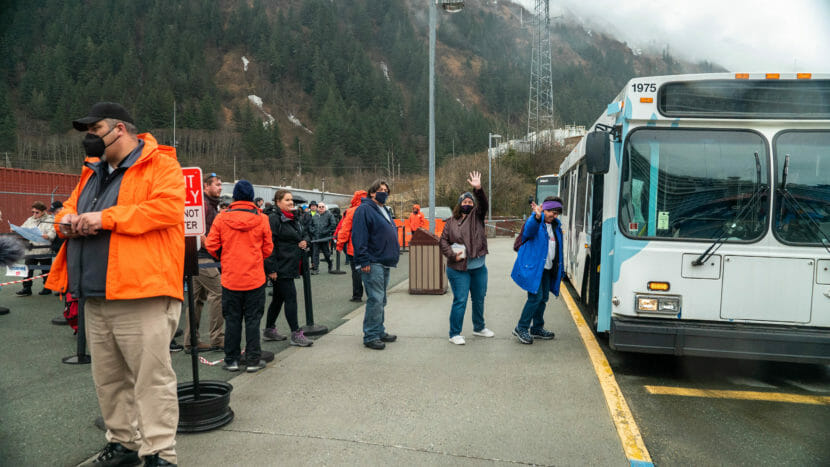Juneau may soon establish a new fund to help the city’s tourism businesses swap out polluting fossil fuel for cleaner forms of energy in their planes, buses and boats.
The proposal would set aside $1 million collected via marine passenger fees to fund a new clean energy loan and incentive program. It’s a small fraction of the $21.5 million in revenue expected from 1.6 million cruise ship visitors this summer.
According to city tourism manager Alix Pierce, the visitor industry generates a lot of Juneau’s greenhouse gas emissions, which contribute to human-caused climate change. She’s heard from residents and business owners who want to cut down on pollution, but she says they still need incentives to speed the transition to cleaner power.
“What I keep hearing consistently is that operators are interested, and that it’s just cost prohibitive,” Pierce said.
Public businesses or governments are often eligible for money that helps them to cut down on fossil fuels. Juneau, for instance, received funding from the Federal Transit Administration to buy electric buses.
But private tourism businesses are usually excluded from those grant programs. Bob Janes, owner of the whale watching and hiking company Gastineau Guiding, has about 30 diesel buses he’d like to replace. But he says it’s hard for small tourism companies to scale up.
“We can dabble here and there in the market, but until we really go into it full speed ahead, the impact is not much,” Janes said. “Well, full speed ahead is a lot of money. But this grant program would hopefully make that possible for us.”
Pierce says there’s a precedent for a loan and incentive program like this. In the early 2000s, the city established a fund that helped companies buy quieter engines for their float planes. The new clean energy program uses that as a model.
At this stage, what qualifies as clean energy is unclear. But Pierce says the bottom line is, it’s something that would cut down on greenhouse gas emissions. She says that could extend to hybrid power or even things like biodiesel.
Holland America and Princess Cruises in Juneau have used biodiesel developed from cooking oil to supplement the fossil fuel that powers some of their tour buses. They claim that it can cut emissions by 10%.
Even energy efficiency projects may qualify under the definitions of clean energy.
“I don’t want to unnecessarily limit operators,” Pierce said. “Maybe a smaller operator that wants to replace a dirty old school bus with just a brand new clean diesel bus — that’s a really big move in terms of emissions reduction.”
But Janes hopes the program will eventually push the local tourism industry toward net-zero emissions through electrification, which would tap into the city’s renewable hydropower supply.
“If I live long enough to see our fleet converted to electric, both on our boats, and with our buses, I will be the happiest person in the world,” he said.
The city is also considering using $5 million dollars of marine passenger fees for electrification of cruise ship docks. Renewable shore power is already available at the South Franklin Dock, which is privately owned by Princess Cruises. But Juneau has long-considered the installation of similar technology at two city-owned docks.
Though both funding proposals are in their preliminary stages, they’ll be up for debate as city budget discussions begin this weekend.






